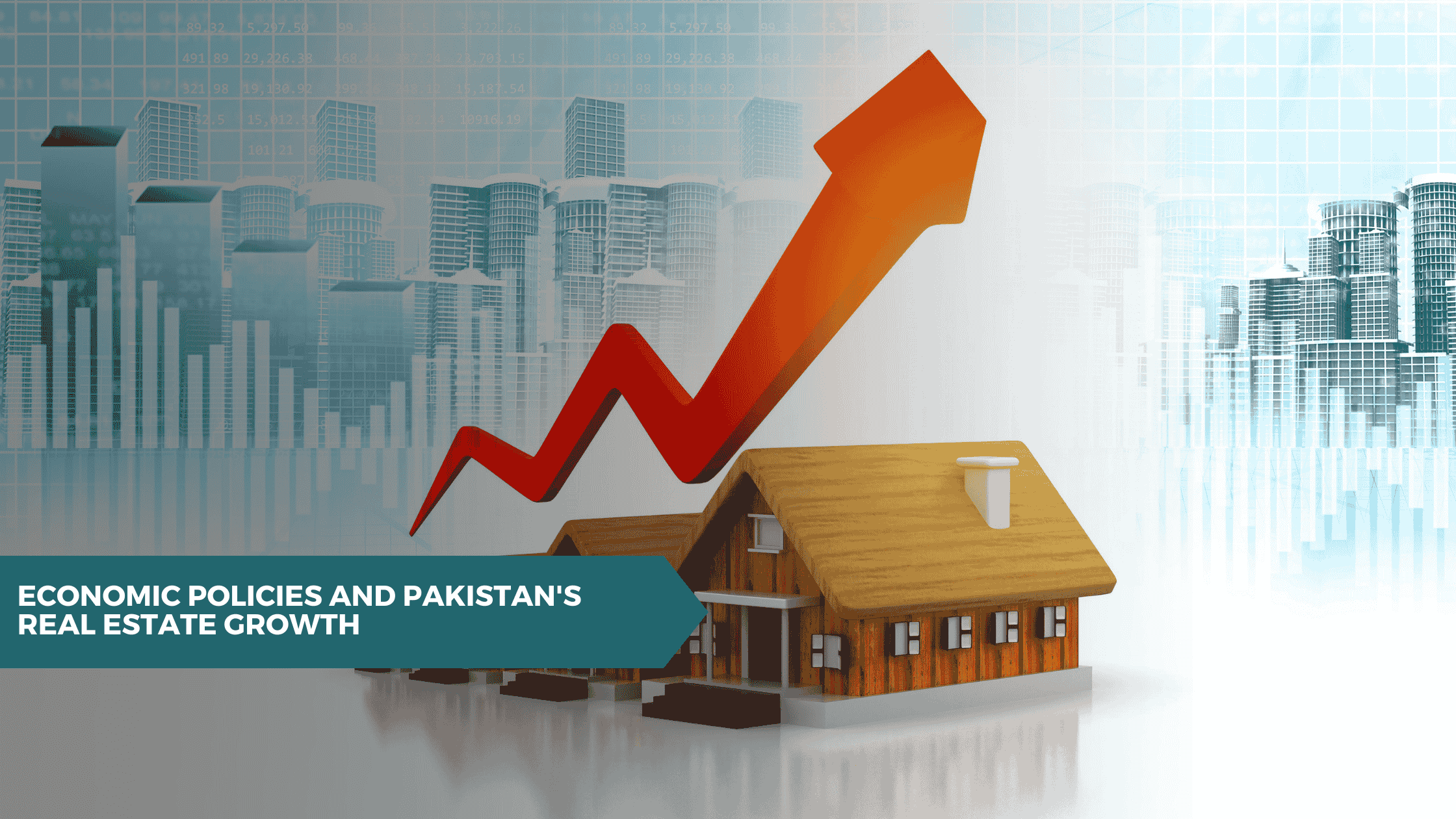
The Impact of Economic Policies on Pakistan’s Real Estate Sector
Real estate plays a crucial role in Pakistan’s economy, significantly contributing to the GDP, employment, and urban development. The sector is closely linked to economic policies that shape market dynamics and influence investor confidence. This article examines how various economic policies impact Pakistan’s real estate sector, focusing on challenges and opportunities for sustainable growth.
Overview of Pakistan’s Real Estate Sector
Pakistan’s real estate sector is one of the fastest-growing industries in the country. It encompasses residential, commercial, and industrial properties, catering to diverse market needs. Rapid urbanization, population growth, and changing consumer preferences are driving demand for modern housing and infrastructure. However, the sector’s full potential remains untapped due to policy gaps and market inefficiencies.
Economic Contributions
- GDP Contribution: The real estate sector contributes approximately 2% to 3% of Pakistan’s GDP directly. When considering related sectors such as construction and housing finance, this figure increases significantly.
- Employment Generation: Real estate is a major source of employment in Pakistan, providing jobs in construction, sales, and property management.
Key Economic Policies Affecting Real Estate
Taxation Policies
Taxation plays a pivotal role in shaping the real estate market. Property taxes and capital gains tax directly influence investment decisions. Recent changes by the Federal Board of Revenue (FBR), including revised property valuations and increased withholding taxes, have created mixed reactions. While these measures aim to promote transparency and curb speculation, they have also raised the cost of property transactions.
Monetary Policies
Monetary policies significantly impact mortgage affordability and financing costs for real estate projects. High interest rates limit access to credit for homebuyers and developers, slowing market growth. Conversely, lower interest rates can stimulate demand by making borrowing more affordable.
Regulatory Policies
The introduction of regulatory frameworks like the proposed Real Estate Regulatory Authority (RERA) aims to standardize practices within the sector. City development authorities such as CDA (Capital Development Authority) and LDA (Lahore Development Authority) are crucial for urban planning. However, delays in approvals and lack of coordination often hinder progress.
Foreign Investment Policies
Policies encouraging overseas Pakistanis to invest in real estate have opened new avenues for growth. Government incentives such as tax exemptions and simplified remittance processes have boosted foreign investment. However, stringent foreign direct investment (FDI) regulations and bureaucratic hurdles still pose challenges.
Impacts of Recent Economic Policies
Growth in Real Estate Development
Government incentives like subsidies for affordable housing have spurred growth in real estate projects. Public-private partnerships in large-scale housing schemes like the Naya Pakistan Housing Program have further accelerated development.
Shift in Investor Sentiment
Policy stability is vital for maintaining investor confidence. Inconsistent tax policies can create uncertainty that discourages long-term investments. However, initiatives aimed at transparency and digitization of property records have positively influenced market sentiment.
Affordability Crisis
Rising construction costs due to import restrictions on materials like cement and steel have exacerbated the housing affordability crisis. Addressing these issues is crucial for making housing accessible to low- and middle-income groups.
Challenges Facing the Sector
Policy Inconsistencies
Frequent changes in tax and regulatory policies create uncertainty for investors.
Corruption and Transparency Issues
Undocumented property dealings erode trust within the market.
Inflationary Pressures
Rising inflation reduces purchasing power, impacting demand for real estate.
Opportunities for Growth
Sustainable Development
Promoting green building practices can lead to long-term benefits within the sector.
Digitization Initiatives
Digital property records enhance transparency and streamline transactions, making it easier for investors to navigate the market.
Affordable Housing Programs
Initiatives like the Naya Pakistan Housing Scheme provide opportunities for inclusive growth by addressing housing shortages.
Recommendations for Policymakers
Investor-Friendly Tax Policies
Simplifying tax structures and providing incentives can attract domestic and foreign investors.
Affordable Housing Finance
Expanding access to low-interest loans can help address housing shortages effectively.
Long-Term Regulatory Frameworks
Establishing consistent policies ensures market stability and encourages sustainable growth.
Promoting Digitization
Comprehensive digitization of property records can minimize corruption and improve market transparency.
Conclusion
Economic policies are integral to the growth and stability of Pakistan’s real estate sector. While challenges such as policy inconsistencies and rising costs persist, opportunities like sustainable development practices and digital transformation hold promise for the future. A balanced approach involving both policymakers and stakeholders is essential to unlock the sector’s full potential and ensure sustainable growth.
Read More:
Blue World City Islamabad Development Update


